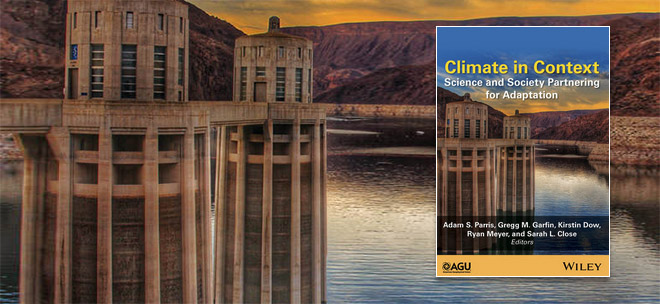Society is increasingly affected by climate impacts, from prolonged water shortages to damaging coastal floods and wildfires. Scientists studying climate variations are eager to have their knowledge used in adaptive decision making. To achieve this, science and society must engage productively around complex management and policy challenges. For over 20 years, the science-society interface has been fertile ground for the Regional Integrated Sciences and Assessments (RISA) programs sponsored by the U.S. National Oceanic and Atmospheric Administration.
Climate in Context (Wiley and Sons, 2016) describes what it takes to help scientists and stakeholders work together to “co-produce” climate science knowledge, policy, and action. This state-of-the art synthesis reflects on lessons learned by RISA programs, and provides a sober assessment of the challenges ahead. Through case studies from various US regions, this book provides lessons and guidance for organizations and individuals who want to work at the science-society interface on a range of climate challenges.
The following two chapters have been coauthored by CSTPR’s Lisa Dilling:
Chapter 1 Assessing needs and decision contexts: RISA approaches to engagement research by C. Simpson, L. Dilling, K. Dow, K. Lackstrom, M.C. Lemos, and R. Riley
Chapter 11 Navigating scales of knowledge and decision-making in the Intermountain West: Implications for science policy by E, Gordon, L. Dilling, E. McNie, and A. Ray


